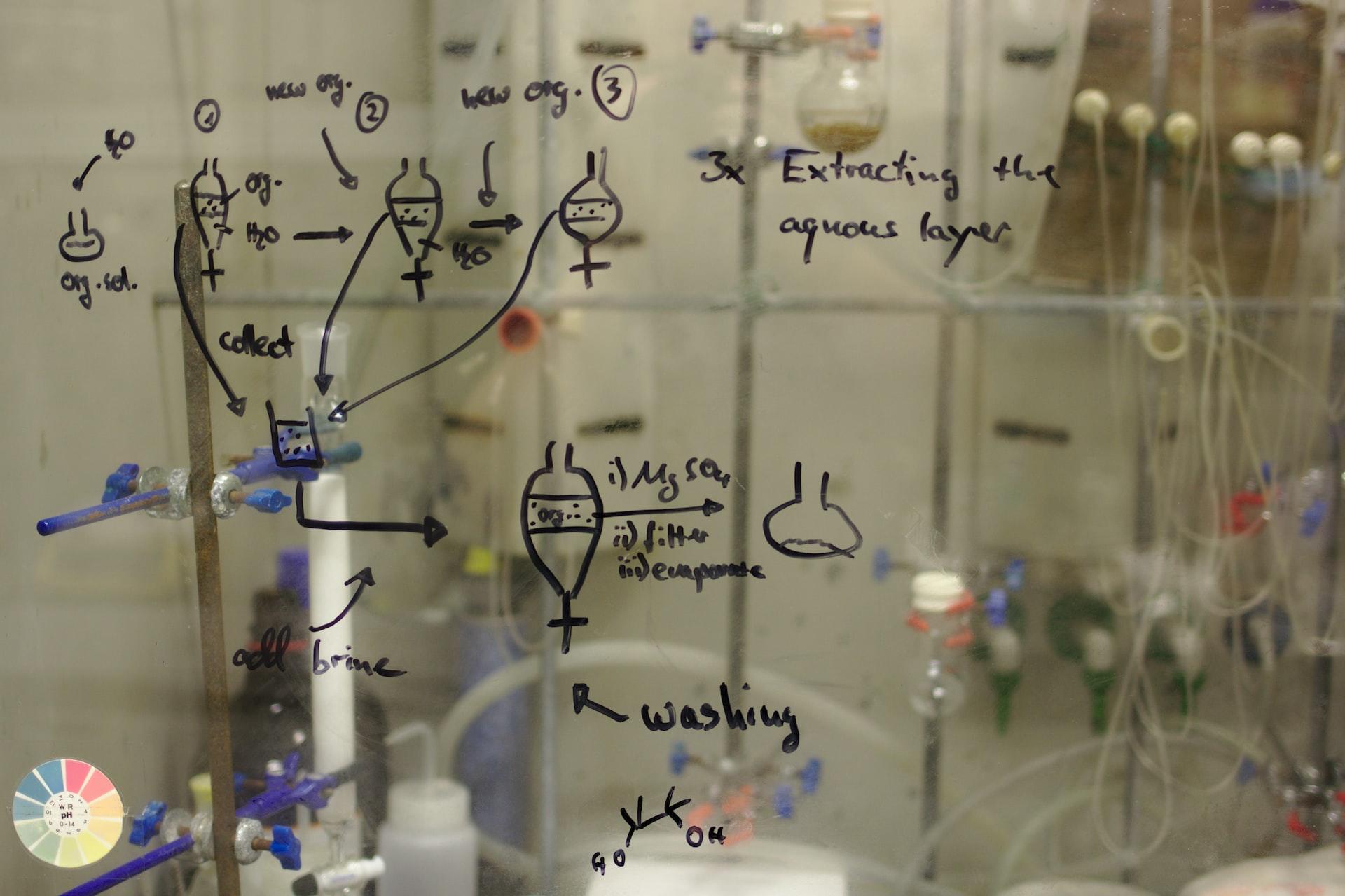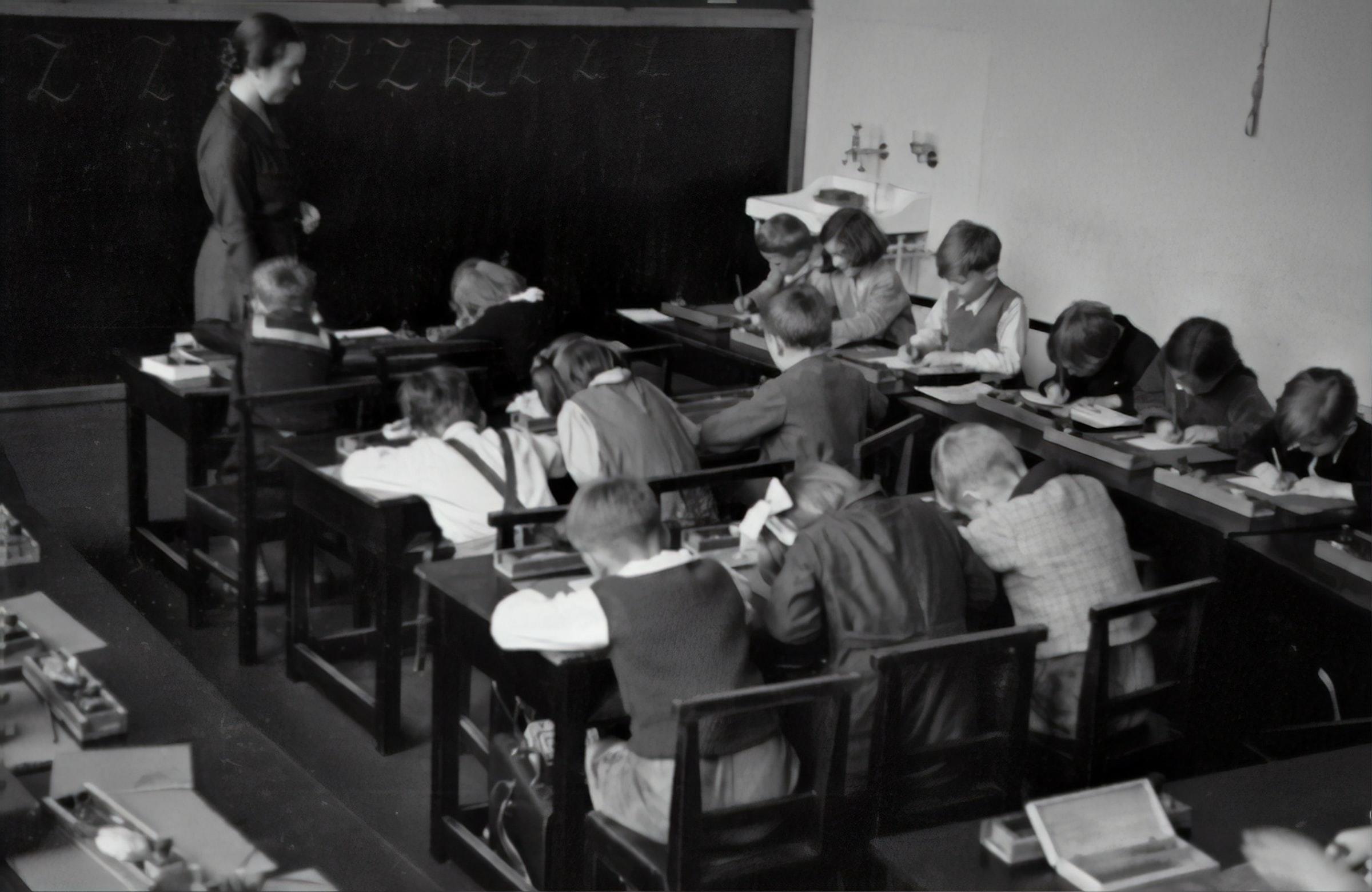Chapters
GCSE Chemistry can be a challenging subject, particularly if you're not science-minded. This course boasts an expanded curriculum that covers a lot of ground:
- the periodic table
- properties of matter
- chemical changes
- energy changes
- organic chemistry
- chemistry of the atmosphere
- chemical analysis
- quantitative chemistry
This is just a partial list of the topics you'll learn about and test on. Even for students mad for science, some of them are daunting! But they're not impossible to study; nor is the final exam very difficult. But it's important to make use of all of the revision resources available to you. They may all present more or less the same information but each presents knowledge nuggets differently.
Not 'getting' a particular concept is a common complaint among GCSE Chemistry students. The exams' marking schemes and examiners' reports support students' assertions. That's why, if you need some extra help understanding a particularly confusing topic, looking at the presented information in different ways helps.
Fortunately, GCSE Chemistry is a popular topic. There's lots of information to be had; lots of revision resources to consult. Some sources even offer up quizzes and games to help you to test your knowledge. Let's find the best online resources to enhance your studies.

Resources for GCSE Chemistry Revision
We didn't have to search very long to find a trove of revision materials targeted at GCSE Chemistry. Indeed, so plentiful were they that we had to limit our findings strictly to those based on the GCSE Chemistry exam. Chemistry is a lot like English, in the sense that you can find a wealth of general resources mixed in with those meant specifically for GCSE revision.
In that light, we present only GCSE-specific online resources. They're a good starting point but you should conduct your own search, just to see what you can find. And if you discover a valuable page not listed here, won't you let us know so we can include it on our list? Thanks!

BBC GCSE Bitesize
As you likely know, this website covers all of the important topics that you need to know for your exams. Thus, Bitesize can be a good place to start your revision. One of this site's best features is exam-board-specific revision. First, select AQA, Edexcel or OCR exam boards. And then, review the sections specifically designed for each of these courses.
However, skimming over other exam boards' Bitesizes is a good idea. As long as you have the time and are careful to avoid learning about topics that are not covered on your syllabus, they can still be useful. You'll find different videos, quizzes and other resources than the ones for your exams. Taking this broader view can help you with all of your chemistry questions.
Past Papers and Marking Schemes
You should download and print out your exam board's past papers and marking schemes - perhaps even before you access Bitesize. And before you even print out any past papers, take the time to go over your exam's Specifications page. It lays out every aspect of your exam: which topics are covered on each paper and which sub-topics are addressed.
Many such Specifications pages preview what each topic's purpose is and how it will be assessed. You'll find the same type of information in your exam board's examiner's reports, only in more detail. You can find out more about these reports later in this article.
O2 Learn
This site is a video-based resource, where you can watch and rate videos on a wide range of different topics. The GCSE-level videos cover many different topics. They cover ionic and covalent bonding, chemical reactions and alkali metals, among other topics. So if you want to cover a particular idea in your revision, you will probably find something useful here.
GCSE Science
This page has written notes covering important topics for chemistry students. It's a great page if you learn best when you take information in by reading; it might inspire you to write out your own colour-coded revision notes. It will also be useful if you want to look up a particular definition or get a quick overview of a certain subject. It covers atomic structure and bonding, the carbon and nitrogen cycles and the use of crude oil, among other topics.
Chemguide
This site also provides written overviews of various topics, but the style is a little less colourful than GCSE Science. You can find help with topics ranging from atomic structure to the instruments that chemists use to analyse substances. Beware that some of the sections are a little bit advanced for GCSE level, though. Try to stick to the basic sections, lest you lose your focus. That is, unless you want to see what A-Level Chemistry looks like.

Coordination Group Publications (CGP)
UK's Number One books website has some quizzes and games that you can use to test your understanding of important Chemistry terms and ideas. You can check your understanding of the differences between solids, liquids and gases. Or you can test yourself on the different kinds of chemical reactions. This site is in the same style as the CGP revision books, but you don’t need to buy or read them to take advantage of the online resources.
Creative Chemistry
Though not targeted specifically at GCSE candidates, this is another good site if you want to test yourself on what you have learned. It is full of worksheets, quizzes and other activities covering most of the topics on the AQA syllabus. If you are studying the same topics for another exam board, these resources can still be useful. Just make sure that you avoid any sections that aren’t covered in your course.
S-Cool
This website can help you to revise all of the most important topics in chemistry. You can revise the differences between acids and bases, the periodic table, how to balance equations and more. The site is set up so that you can learn about a particular topic and then test yourself. Once finished with that, you'll get some tips that will help you to revise the topic again.
You can find help and loads of revision materials here for many other GCSE subjects. But not for GCSE Construction, unfortunately. Still, S-Cool has a lot to offer and they're particularly generous with chemistry resources.
Chemistry Rules
Chemistry Rules GCSE page is elegant in its function. You won't find lots to distract you; just black characters on a white background. But this site provides notes on many of the ideas you will need to understand for your exams. It also gives you the chance to test your equation-balancing skills.
WebElements
Were you looking for an interactive periodic table where you can click on each element to find out more about it? The information WebElements provides is probably more than you need to know. It even covers the history of each element’s discovery; fascinating, but not needed for your exams. This site is still a useful resource if you want to explore the periodic table or find out more about the elements you are studying.
Incidentally, Ptable works much the same way as WebElements. But the links just take you to each element's Wikipedia page. If you want to see some of the reactions that each element can take part in, Periodic Videos would be a better option. Each element in this periodic table is linked to a short video about its properties.

How to Revise for GCSE Chemistry
You might think that GCSE Chemistry revision is just like revising for Further Maths GCSE - or any other subject, for that matter. Hit the books hard, memorise as much as possible and do your best on the exam. That's one way to go about it but it's not the best way. This is truly one subject where working smarter - not harder, pays off. But what does that mean, exactly?
The first, most important step is knowing what you're up against. As we've pointed out in this article's introduction, GCSE Chemistry is a wide-ranging subject. There's so much ground to cover that the only way you can be sure to touch on it all is to survey the whole subject.
Start by going over your exam board's past papers, marking schemes and examiners' reports. Did you look at the exam board's specification page before downloading those reports? That page gives you a good overview of the whole exam, too.
Set aside the past papers and marking schemes for now; focus on the examiner's report. It critiques the exam itself and describes how past students met their challenge. Question for question, you'll read analyses of what previous test-takers did well and where they lagged. Most importantly, you'll find recommendations for how future students could improve their performance.
Consider creating a visual for each of those recommendations. You might make a poster to tack onto your wall or build a deck of flashcards. On one side, write the targeted criterion; on the other, the recommendation. And then, set the deck aside; you won't need to look at it again until the weeks before you sit exams.
Organisation is the key to effective revision in every GCSE subject but it's vital for your chemistry studies. You have so much ground to cover; so many topics to learn about that it will be difficult to keep track of everything. Counter this challenge with mind maps. You can build one map for organic chemistry, one for quantitative chemistry, another for chemical analysis and so on.
The MindMeister mapping platform allows limited free access. You may draw and share up to three maps at no charge. If you revise with a study group, each member may draw three maps, provided they each have their own accounts. If your study group is large enough, you may end up with a map for each Chemistry topic featured on your exam.
However, if you're studying alone, it's best to draw your maps by hand. In fact, even if you study with a group, hand-drawing your maps will be more effective. That's because your brain builds new neural pathways as you manually record information, making it easier to memorise. Creating visuals, manually writing things down and even reading your notes out loud all promote recall.
As long as you're organising information, organise your time, too. In fact, you should set up a revision schedule before you start organising information. Studies show that an effective revision schedule helps lower student stress and prevents that mad urge to cram in the weeks before your exams.

How to Set Up a Revision Schedule
You'll have anywhere from five to eight (or more) exams to prepare for. You may love chemistry so much you can't bear thinking about studying any other subject. Conversely, you might be so worried about this exam that it's all you can study. Neither of those extremes will suit. You need to give every one of your GCSE subjects equal time.
Besides, you may have chosen other ponderous subjects like GCSE Statistics or Further Maths. You may even have opted to sit a double-science exam; maybe biology and chemistry. So managing your revision time is of paramount importance.
First, let's set up your revision calendar. Let's say you've signed on for eight subjects. You might revise two subjects each day for an hour and a half apiece. That's Monday through Thursday sorted. Go ahead and take Friday night off; you need to let off some steam. On Saturday, sacrifice at least two hours to go over that week's notes. Also, go through your flashcard decks (if you created any) and cross-check what you've learned against your past papers.
And then, you're done revising for the week. Feel free to enjoy a guilt-free Saturday evening and a fun, relaxing Sunday. On Monday, you'll hit the books again. And that's your weekly revision timetable all set up. How will you spend your revision hours?
Many GCSE candidates dedicate at least a couple of hours to their nightly revision. Some block off three hours or more. If you manage your study time effectively, you may get away with less time than that.
The best way to maintain your focus is by taking occasional breaks. Not whenever you feel like it; these rest periods have to be scheduled. This time-management technique even has a name. It's called Pomodoro, after the tomato-shaped kitchen timer.
Here's how it works. Let's say you've dedicated three hours to revising two subjects each night. When you start your study session, set your timer for 45 minutes. When it chimes, put down the pencil and walk away from your books. Give yourself five minutes to stretch your legs, get something to eat and/or drink, maybe give Mum a cuddle or pet the dog. When your break is over, reset your timer and hit the books again.
So effective is this work/study strategy that innovative Information and Communications Technology companies have rushed to design the most engaging Pomodoro apps. Some are rather plain-Jane; they consist of just a dual timer - one for your study sessions and one for your breaks. Others have built mini-games into their apps so you can play during your break and earn rewards while you study. You should download such a productivity app to help you manage your study time.

























I think my website should be included in your choices?
http://www.docbrown.info